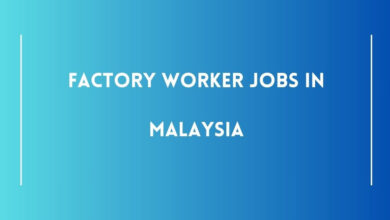Unskilled Jobs in Spain with Visa Sponsorship 2024

Today, we’ll tell you everything you need to know about how to apply for unskilled jobs in Spain with funding and how many jobs are open for foreigners in this category. Keep in mind that not all companies will give you a visa; only some may sponsor you for one.
If you’re not from the EU, you will need a work visa to live and work in Spain. To get a work visa, you usually need an offer of employment from a Spanish company that will help pay for your application. There will have to be proof from the employer that the job can’t be filled by a Spanish or EU national and that you have the skills and qualifications to do the job.
Details of Unskilled Jobs in Spain with Visa Sponsorship
- Country Name: Spain
- Job type: Unskilled
- Experience Required: No
- Knowledge Required: No
- Age Limit: Minimum 22 Years
- Visa Sponsorship: Yes
- Salary: 23,646 EUR/ Year
Benefits of Unskilled Jobs in Spain with Visa Sponsorship
- Legal Authorization: People can legally live and work in Spain if their companies sponsor their visas. This makes sure that they follow all immigration laws and rules.
- Employment Opportunities: In Spain, unskilled jobs can be found in a wide range of fields, including agriculture, retail, services, hospitality, and building. This means that people with a range of skill levels can find work.
- Competitive Pay: Some unskilled jobs don’t require specific skills, but they usually pay well and come with benefits like health insurance, paid time off, and other perks that help keep your finances in order.
- Development of Skills: People can get hands-on training, improve their basic workplace skills, and learn new tasks at unskilled jobs, which can help them grow personally and professionally.
- Experience with Culture: Working in Spain lets people fully experience Spanish culture, language, and way of life, giving them a rich cultural experience and chances to meet locals.
- Networking Chances: People with unskilled jobs often have to work with diverse teams and talk to customers and coworkers. This gives them the chance to meet new people and make business connections.
- Work-Life Balance: Many employers in Spain put a lot of emphasis on work-life balance by giving reasonable hours, flexible schedules, and supportive policies at work, all of which are good for your health.
- Access to Services: In Spain, workers usually have access to health care, social benefits, and support systems that are given by the government or their employers. This protects their health and well-being.
- Opportunities to Travel: Because Spain is in the middle of Europe, it is easy to get around the country and to other European countries. This means that workers can use their free time to see and experience new places.
- Integration and Community: People who work in Spain can become part of the local communities, make friends, take part in cultural events, and add to the country’s lively social fabric.
Requirement
- Valid Passport: Applicants must have a passport from their home country that is still good and has at least six months left on it.
- Visa Application: Applicants may need to apply for a work visa or residence pass through the Spanish consulate or embassy in their home country, depending on their nationality and the length of time they plan to stay.
- Jobs: People who want to come to Spain must have a job offer or work contract from a company that is willing to sponsor their visa. In the job offer, it should say what the duties are, how much the pay is, what perks are available, and how long the job will last.
- Health Insurance: People applying for some types of visas must have health insurance that covers them while they are in Spain. People who want to apply may need to show proof of health insurance that meets the needs of the Spanish government.
- Financial Means: Applicants may need to show that they have enough money to live on while they are in Spain, especially if they won’t be able to get help from the government right away.
- Criminal Record Check: People applying for some visas may need to show proof of their criminal past, such as a criminal record check or a certificate from their home country.
- Medical check: Depending on the type of visa, applicants may have to go through a medical check to make sure they are healthy enough to enter Spain.
- Language Skills: While not always necessary for low-skilled jobs, being able to speak and understand simple Spanish can help you communicate and fit in at work and in your community.
- Compliance with Immigration Laws: Applicants must follow all of Spain’s immigration laws and rules, such as any requirements for extending a visa, renewing a residence permit, or changing their job status.
Average Salary
In Spain, the average salary can be different depending on the job, the industry, the location, and the amount of experience. The Spanish National Institute of Statistics says that the average gross pay in Spain in 2017 was €23,646.
List of Unskilled Jobs Available in Spain
Waiter/waitress
Spain has a lot of jobs in the hospitality business, like waiters and waitresses. As a waiter or waitress, your job is to take orders, bring people their food and drinks, and take their money. In addition, they might have to set the tables, clean the dining area, and help with other chores as needed.
You might not need a college degree or training to work as a waiter or waitress in Spain, but you might need to know the basics of the Spanish language and the hospitality business. Employers might also like to hire people who have worked in restaurants or with customers before.
Dishwasher
Working as a dishwasher is another common unskilled job in the hospitality industry in Spain. Dishwashers are responsible for cleaning dishes, utensils, and kitchen equipment in restaurants and other food service establishments. They may also be responsible for maintaining the cleanliness of the kitchen and assisting with other tasks as needed.
To work as a dishwasher in Spain, you may not need formal education or training, but some basic knowledge of the Spanish language and hospitality industry may be required. Employers may also prefer candidates who have previous experience in the restaurant industry or kitchen work.
Housekeeper
Another common low-skilled job in Spain is housekeeping, especially in the tourism and hospitality business. Housekeepers clean hotel rooms, flats, and other places to stay and make sure they stay clean after guests leave. They may also have to make sure that rooms are clean, change the sheets, and stock the bathrooms with toiletries.
It’s possible to work as a cleaner in Spain without going to school or getting training, but you might need to know how to clean and speak Spanish. Employers may also want to hire people who have worked in the cleaning or catering industries before.
Gardener
Another low-skilled job that might be open in Spain is as a gardener. Gardeners take care of the grounds and landscaping around homes, parks, and other outdoor areas. They might be in charge of cutting the grass, trimming trees and bushes, planting flowers, and keeping watering systems in good shape.
You might not need a degree or training to work as a gardener in Spain, but you might need to know the basics of gardening, taking care of plants, and the Spanish language. Employers may also like to hire people who have experience with planting or gardening.
Construction worker
Another popular low-skilled job in Spain is working as a construction worker. Construction workers are in charge of doing physical work on construction sites, like moving things, digging trenches, and running heavy equipment. In some cases, they may also have to help trained workers do their jobs, like electricians and plumbers.
You might not need a college degree or training to work as a construction worker in Spain, but you might need to know the basics of building techniques and the Spanish language. Some employers may also want to hire people who have worked in building or manual labor before.
Cleaner
Cleaning is another popular low-skilled job in Spain. Cleaners are in charge of keeping places like businesses, homes, and public areas clean, both inside and outside. They might have to clean the floors, bathrooms, kitchens, and other rooms, as well as vacuum, dust, and take out the trash.
In Spain, you might not need any formal schooling or training to work as a cleaner, but you might need to know how to clean and speak Spanish. Employers may also like to hire people who have worked as cleaners before.
Farmhand
Another low-skilled job that might be open in Spain is as a farmhand. Farmhands are in charge of doing physical work on farms, like planting, harvesting, and maintaining crops, taking care of animals, and driving farm tools.
In Spain, you might not need any formal schooling or training to work as a farmhand, but you might need to know how to farm and speak Spanish. Employers may also like to hire people who have worked in agriculture or manual tasks before.
How to Apply
- www.indeed.com
- www.totaljobs.com
- Linkedin.com
Conclusion:
To apply for low-skilled jobs in Spain with a sponsoring company visa, you only need a valid passport, a job offer from a sponsoring business, to follow immigration laws, and to meet basic requirements like having health insurance and language skills. People looking for work in Spain can choose from a wide range of jobs, such as waiter or waitress, dishwasher, maid, gardener, construction worker, cleaner, or farmhand.
Frequently Asked Questions
-
What is the average salary for unskilled jobs in Spain?
The average pay for low-skilled jobs in Spain depends on the type of job, the business, the location, and the amount of experience the worker has. In 2017, the average gross pay in Spain was €23,646. However, salaries can be different for each person.
-
What are the requirements for applying for unskilled jobs in Spain?
People who want to apply must have a valid passport, a job offer from a sponsoring business, health insurance, enough money to live on, no criminal record, and maybe even a medical check. You might also need to know some basic Spanish.





